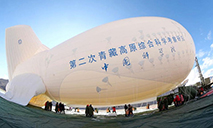Interview: U.S.-led IPEF risks fomenting divisions among ASEAN countries, warns Philippine analyst
MANILA, May 25 (Xinhua) -- The U.S.-led Indo-Pacific Economic Framework (IPEF) "may find relatively few supports" in some Southeast Asian countries and may "have fewer takers in the region," as it risks fomenting divisions among the Association of Southeast Asian Nations (ASEAN), a Philippine political analyst has warned.
Launched Monday by U.S. President Joe Biden, the so-called IPEF is believed to be part of its "Indo-Pacific Strategy" and focuses on "four pillars" -- trade, supply chains, clean energy and infrastructure, as well as tax and anti-corruption.
ASEAN countries will have an ambivalent outlook about the economic initiative as some ASEAN countries are "concerned and suspicious" that the "Indo-Pacific Strategy" is nothing more than "a narrower, security-centric effort" of the United States to counter China, the region's leading trading partner, said Anna Malindog-Uy, a researcher of Philippine-BRICS Strategic Studies.
With the ultimate goal of countering China's growing and latent economic influence in the Asia-Pacific region, the IPEF is aimed at securing U.S. survival as a global hegemon and dominant power, the expert added, pointing out that the United States has been constantly hyping up its "Indo-Pacific Strategy" in a bid to create division, instability and confrontation in the Asia-Pacific region.
She also mentioned that ASEAN countries like the Philippines have to figure out a way forward without sacrificing peace and stability. "ASEAN member states must be consistent and steadfast in upholding ASEAN centrality in matters such as regional security architecture and regional order," the expert stressed.
She noted that ASEAN needs collective security through a combination of multilateralism and bilateralism by championing ASEAN centrality, while pursuing win-win solutions to regional problems and challenges.
"The best option for ASEAN countries like the Philippines is strict neutrality and pursuance of an independent foreign policy," Malindog-Uy said.
Photos
 China’s central bank to issue commemorative coins on cultural theme of auspiciousness, including two heart-shaped coins
China’s central bank to issue commemorative coins on cultural theme of auspiciousness, including two heart-shaped coins Population of endangered black-headed gulls exceeds 10,000 mark in NE China’s coastal city of Panjin
Population of endangered black-headed gulls exceeds 10,000 mark in NE China’s coastal city of Panjin China's self-developed floating airship breaks record
China's self-developed floating airship breaks record Chinese germplasm bank conserves biodiversity in warm temperate zone
Chinese germplasm bank conserves biodiversity in warm temperate zone
Related Stories
- U.S. reports weekly count of 100,000 child COVID-19 cases
- Inglorious history behind exhibitions at National Museum of the American Indian
- US National Endowment for Democracy unmasked
- U.S. new Indo-Pacific economic framework faces headwinds
- US may lack ‘ability to lead IPEF, reconcile interests’ with members
Copyright © 2022 People's Daily Online. All Rights Reserved.






